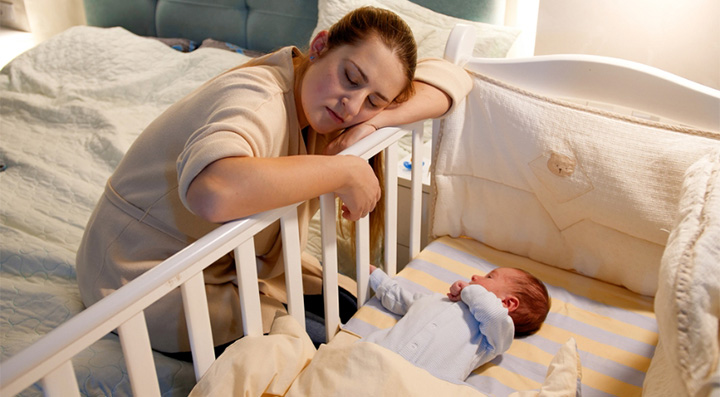
Image: Shutterstock
Bringing a new life into this world is an immense responsibility only a woman can succeed at. A woman goes through a lot during these 9 months, from constant nausea to sleepless nights. Of course, you get all the love and care from your partner throughout this phase. But the challenges don’t end at the birth of the baby. And you might be aware of what lies ahead. But it’s equally essential for your partner to know all your difficulties in your fourth trimester so that they can support you every step of the way.
Here are some necessary things your partner should be aware of when you are in your fourth trimester or after the delivery phase.
1. Invisible Load Is Not A Myth
It takes a lot for a mother to manage everything and return to the routine. However, many people don’t know much about the invisible load that a woman goes through after giving birth. To keep it short and straightforward, the invisible load is the mental and physical load on a mother that comes from various duties and responsibilities she has to perform apart from taking care of herself and the baby. So, it would be great to have a partner who can share the household responsibilities and give you a helping hand to ease the pressure on you.
2. Breastfeeding Is Tough
Image: Shutterstock
Breastfeeding is more complex than it looks. First, there’s so much pain, soreness, and uneasiness while nursing the baby. It is more difficult because a new mother is not used to it and can struggle while feeding her little one. Secondly, you can also doubt if you are doing it correctly or not or if you will provide the baby with the correct amount of milk. And it becomes very challenging when you see yourself lactating in the middle of the night, making you feel super gross. So, with your partner’s help, you can easily adjust appropriately to the breastfeeding routine and achieve other latching positions.
3. Sleepless Nights Makes It Worsen
Image: Shutterstock
If working and caring for the little one and other tasks are not tiring enough, then sleepless nights will surely make you exhausted. After delivery, the majority of mothers frequently experience new sleep difficulties. Newborns must be fed both day and night because they constantly wake up. Mothers are usually forced to change their sleep cycles due to these demands, often sleeping less at night. Poor sleep following childbirth can be a significant issue. They may have a negative impact not only on the mom but also on their baby and partner.
4. Postpartum Depression Is A Serious Concern
Image: Shutterstock
Most women find having a baby fascinating, happy, and sometimes stressful. However, it can become distressing and challenging for women suffering from postpartum depression. Depression that develops during pregnancy or right after giving birth is peripartum(1). In addition, some women may be more likely to experience mental health issues, especially despair and anxiety. Postpartum depression is a severe but manageable medical condition marked by intense sadness, apathy, fear, and changes in mood, activity levels, sleep patterns, and food. For both the mother and the baby, there are risks. Mothers frequently go through significant biological, emotional, economic, and social upheavals during this time. So, your partner’s reassurance will always benefit your mood swings.
5. Body Pain Is Real
Image: Shutterstock
Muscle stiffness, soreness, and pains are possible, especially in the lower back, knees, and belly. Additionally, you could have noticed that the pregnancy-related edema in your face, legs, and ankles persisted after delivery. This is because the body stores more water during pregnancy to support the growing fetus. Postpartum swelling is the term for this accumulating weight(2). Unfortunately, after giving birth, it doesn’t instantly decrease. So, a little massage from your partner will be a heavenly experience.
6. Lesser Verbal Support, More Physical Support
Image: Shutterstock
Apart from all these unavoidable physical and psychological pressures, most mothers might disapprove of their partners just making false promises and statements to help them out in case they need anything. So, it’d be better if the partners could understand such situations where it is evident that a mother needs help to manage the workload properly or to care for the baby without feeling too exhausted. And also, remember that mothers don’t need a comparison of their parenting styles with others, especially their partner’s mother. So, it’s always sensible for your partner not to talk about the flaws and compare your methods with their mothers as you are doing a good job.
These were some of the unnoticed yet challenging changes a mother goes through in her fourth trimester. So, giving her proper treatment and support can make it easier for her to avoid many unwanted disorders and diseases. Your partner will address these changes and share responsibilities with you to make it an enjoyable experience. As for mothers, you are doing a great job!

















